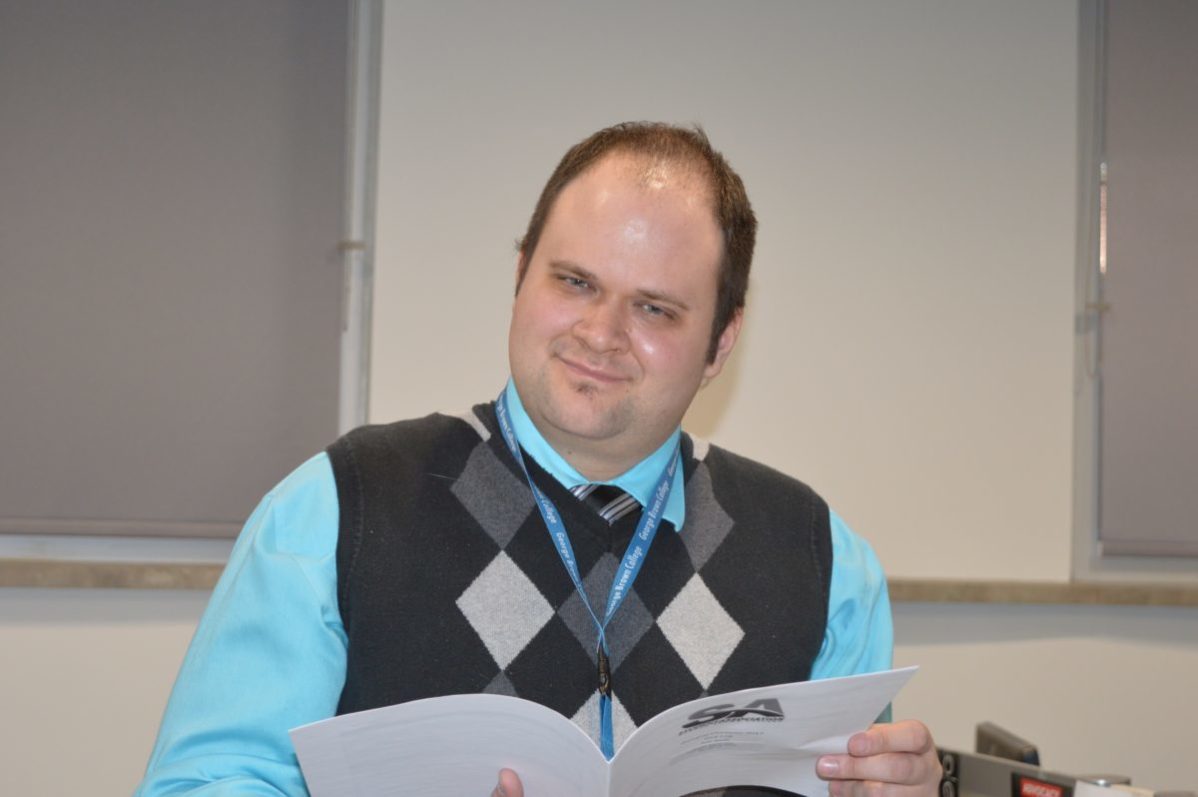In a board meeting on Monday April 19, the Student Association of George Brown College’s (SAGBC) board of directors discussed several recommendations on how the SA should change how it conducts its elections in the future.
The SAGBC funds the Dialog.
The recommendations were laid out in a two-part report presented by the chief returning officer (CRO), Charles Wilson, for the Spring 2021 election which took place between April 5 and April 9. Proposed changes include structural evaluations of the positions of director of communications and internal and director of operations, a review of the Election Committee, a focus on increasing the diversity of the board, and implementing a ranked ballot election system.
Wilson says that due to the COVID-19 pandemic, the last three election cycles have been “very odd times”, and that he is shocked for the voting rate to have been as high as 9.1 per cent.
“We haven’t been on campus, we haven’t had people on the ground to get people to vote. For the [voting rate] to be around nine percent in these circumstances actually does amaze me,” says Wilson.
According to the CRO Report, the Spring 2021 elections received 1,815 votes from over 50 countries. Wilson says that while it may not be a record high, it is among the top voter turnouts of his time at the SAGBC.
“This was done under crisis. As we move toward a new normal, there are elements of the electoral system which should remain changed. Still, other parts should be considered and evaluated to create a more robust electoral system.”
Wilson says that in order to facilitate greater voting participation, he believes more diversity is needed on board. Not only in terms of race, domestic status, and sexual orientation, but also in terms of social-economic factors.
“When I see an issue, and when an issue comes like this, that quite frankly threatens the integrity of the product of the election which I oversee, and that is the lack of diversity the lack of diverse voices, that becomes worrisome and that becomes problematic.”
“I’m not saying this needs to happen, I’m saying in terms of the politics of the situation, something needs to be reviewed here,” says Wilson.
Wilson also recommended using ranked ballots where voters can rank candidates in order, rather than the current first past the post system that allows them to circle only one option. Switching to this method will enable voters to express their preferences between candidates rather than simply their first choice.
Wilson’s report also touched on the return to a “normal election”. This would entail a limitation placed on the number of posters available for candidates to put on campus from five to 15 and a renewal and clarification of the rules regarding social media (with a view of limiting the role of the CRO and deputy returning officer as referee of the social media rules). Moreover, using a limited number of polling stations, which “can be run through the SimplyVoting software with limited circumstances where paper ballots can be used”, as well as an online nomination form, with the possibility of having signatures done online or via paper.
“The election system is at a crossroads. Four years ago when I began this position, we were using only paper ballots. In the last thirteen months, we have held three elections that were completely online without in-person campaigning,” says Wilson. “That’s how quickly elections have transformed. We’re moving towards a new normal.”


